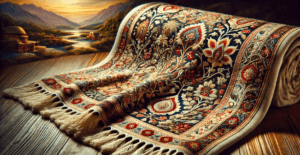Kashmiri Shawl Sellers Face Rising Threats and Discrimination Across India
Kashmiri shawl sellers are facing increasing threats and discrimination across India. Munawar Shah, a 45-year-old trader, recalls a frightening encounter in Himachal Pradesh when two men demanded his ID and threatened him. Having sold shawls for 30 years, he now sees rising hostility toward Kashmiris. Many traders rely on winter sales for their survival, but since the BJP’s rise in 2014 and the Pulwama attack in 2019, they face growing boycotts and attacks. Nasir Khuehami from the J&K Student Association reports at least 15 recent harassment incidents.
Cases like Shafi Khoja, who was stabbed and robbed in Punjab, and Fareed Ahmad, who was beaten in Kapurthala, highlight the dangers they face. Many now travel in groups for safety. However, victims say police rarely take action unless incidents go viral. Mainstream media and Bollywood are also blamed for fueling negative stereotypes. Despite the risks, Kashmir’s high unemployment rate leaves these traders with no choice but to continue their dangerous work.

Kashmiri Shawl Sellers Face Rising Threats and Discrimination Across India
Munawar Shah, a 45-year-old shawl seller from Kupwara, Kashmir, recalls a frightening encounter in Himachal Pradesh. While carrying his bundle of shawls, two men on motorcycles stopped him and demanded to see his identification. When he refused, they threatened him. Fortunately, he recognized one of the men in their group, which prevented the situation from escalating into violence.
For the past 30 years, Shah has been traveling across states, especially Himachal Pradesh, to sell shawls. However, in recent years, he has felt a noticeable rise in hostility towards Kashmiris. “Being a Kashmiri Muslim puts us at risk,” he shared. “We live in fear every single day.”
Increasing Hostility Towards Kashmiris
Every winter, thousands of Kashmiris leave their homes to sell shawls and dry fruits in different parts of India. These three months of business are crucial for their survival, as they help them earn enough money to support their families for the rest of the year. However, due to growing tensions, fewer people are willing to buy from them.
Since the BJP government came to power in 2014, and particularly after the Pulwama attack in 2019, Kashmiri Muslims have faced increasing discrimination. They are frequently labeled as “enemies” and targeted with calls for boycotts. Many have been harassed, threatened, or even attacked in states like Uttar Pradesh, Punjab, Haryana, and Himachal Pradesh.
Nasir Khuehami, a member of the J&K Student Association, has been monitoring these incidents. He reports that in just the past four months, there have been at least 15 cases of Kashmiri traders being harassed. However, many incidents go unreported as victims often lack smartphones or fear further trouble.
Attacks and Harassment Continue
Shafi Khoja, another Kashmiri trader, was attacked in Punjab’s Jalandhar district. He was stabbed by three men who stole his money, mobile phone, and shawls worth ₹50,000. Left bleeding on the roadside, he had to wait two hours before fellow Kashmiris found him and took him to a hospital. “I don’t feel safe here anymore,” he admitted. “Once I go back home, I’d rather beg than come here and risk my life again.”
Another trader, 32-year-old Fareed Ahmad, was attacked in February 2025 in Punjab’s Kapurthala district. He was brutally beaten and robbed. “They tried to kill me,” he said. “I still don’t know how I survived.” Since the attack, Fareed has been unable to work, leading to financial hardship. Many Kashmiri traders now travel in groups for safety, as they fear being targeted if they are alone.
Lack of Police Action and Media’s Role
Despite repeated complaints, Kashmiri victims say the police rarely take action unless their cases go viral on social media. When Fareed Ahmad’s stolen phone was traced to a village, the police refused to investigate, fearing opposition from local residents.
Many Kashmiris believe mainstream media plays a major role in fueling hatred against them. News channels often portray them as “anti-nationals” or “terror supporters.” Even Bollywood movies have contributed to these negative stereotypes. Activist Iltija Mufti criticized both the government and the media, saying, “The entire system is working to isolate and alienate Kashmiris.”
No Other Option but to Continue
Unemployment in Kashmir has worsened since Article 370 was revoked in 2019, making it even harder for locals to find jobs. This has left many, like Munawar Shah, with no choice but to continue selling shawls in other states, despite the risks they face.
“What else can we do?” Shah asked. “We have families to feed and debts to pay. We have to take this risk because we don’t have any other way to survive.”
You must be logged in to post a comment.